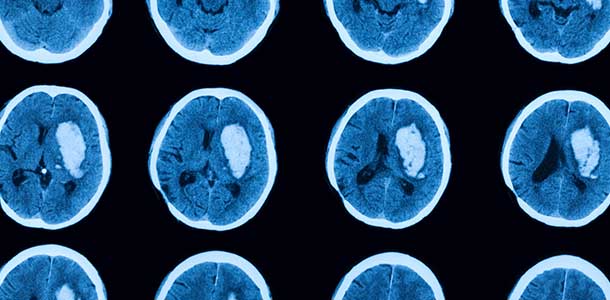Warning Signs of Possible Stroke
There are several warning signs of possible stroke:
- Sudden numbness or weakness of the face, arm or leg, especially on one side of the body
- Sudden confusion, trouble speaking or difficulty understanding others
- Sudden trouble seeing in one or both eyes
- Sudden trouble walking, dizziness, loss of balance or coordination
- Sudden, severe headache with no known cause
Think FAST
If you or someone you're with has any of these symptoms, call 9-1-1 or get yourself or them to a hospital immediately. Staff in the emergency department will administer acute stroke medications to try to stop a stroke while it is happening. Ischemic stroke, the most common type of stroke, is treated with the 'clot-busting' drug known as tPA. The drug must be given to patients within three- to four-and-a-half hours after the onset of stroke symptoms, and preferably sooner.
Use the acronym FAST to quickly identify possible strokes:
F = FACE
Smile. Does one side of the face droop? Can you see the same number of teeth on each side of the face?
A = ARMS
Hold up both arms for 10 seconds. Does one drift downward?
S = SPEECH
Repeat a simple sentence. Is the speech slurred or strange? Can you understand the person?
T = TIME
If these signs are present, every second counts. Call 9-1-1 immediately.
Stroke Risk Factors
- High blood pressure
- Diabetes
- High Cholesterol
- Heart Disease
- Irregular Heartbeat
- Coronary artery disease
- Smoking (including second-hand smoke)
- Heavy alcohol usage
- Physical inactivity
- Being overweight
- Use of birth control pills, anticoagulants, and steroids
- Hormone replacement therapy
- Heart conditions such as atrial fibrillation, endocarditis, and cardiomyopathy
Preventing Stroke
The best way to keep your brain healthy is to avoid a stroke in the first place. The best ways to prevent stroke are to do the following:
- Keep your blood pressure controlled through lifestyle changes and/or medications
- Don't smoke or stop smoking
- Take steps to manage your cholesterol
- Limit your alcohol consumption
- Exercise regularly
- Maintain a healthy weight.
Learn more about stroke services at Spring Valley Hospital >

